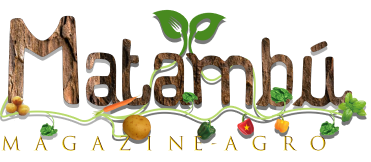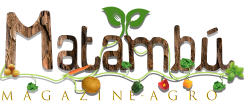[ad_1]
A ruling by South Africa’s authorities to ban “meaty” names for plant-based meals has angered the nation’s alt-meat sector.
The South African Department of Agriculture, Land Reform and Rural Development (DALRRD) introduced final Wednesday (22 June) that descriptions corresponding to “veggie biltong”, “plant-based meatballs” and “vegan nuggets” are to be outlawed.
The division mentioned the phrases don’t meet the definition of “processed meat” beneath the nation’s Regulation No.R.1283. It claims they’re deceptive.
In a letter addressed to “all processors, importers and retailers of meat analogues”, DALRRD instructed that meat options “must not use the product names prescribed and reserved for processed meat products”.
The letter additionally instructed the nation’s Food Safety Agency (FSA) to grab and take away any plant-based merchandise utilizing names that historically consult with animal-based merchandise.
In a associated transfer, it’s understood Woolworths, one of many largest grocery store chains within the nation, has been instructed by the FSA to cease promoting plant-based egg substitute Just Egg beneath menace of seizure. It was instructed the product being offered as eggs was deceptive because it had not hailed from fowl.
Just Food has requested Just Egg’s producer, the US agency Eat Just, for a response to this transfer.
Among these to react to the federal government’s broader transfer against the terminology utilized by alt-meat corporations was South Africa-based plant-based enterprise Fry Family Foods, owned by US-based The Livekindly Collective.
“Fry’s, along with many of South Africa’s plant-based food stakeholders, believe that Regulation No.R.1283 does not apply to plant-based meat alternatives, and we, therefore, do not believe that it is reasonable,” it mentioned.
It added: “Fry’s has been producing plant-based protein merchandise for over 30 years from our manufacturing unit in Durban, South Africa. The firm is the pioneer of the class in South Africa. At no level have we felt that our naming conventions have been complicated for customers, and in reality, our product names play an essential function in serving to our customers perceive the right way to use our merchandise. We really feel strongly that if we can’t use product names like ‘burger’, ‘sausage’, ‘nugget’ or ‘mince’ it’s going to create confusion for customers. Our customers respect clear direct communication.
“More so, the impact on our business of recalling, relabelling and repackaging would be massive at a time when the South African government should really be supporting local business growth rather than making it harder for them to operate.”
Tammy Fry, co-founder of Fry’s, mentioned: “Plant-based foods play a vital role in making our food systems more sustainable. Enforcing a regulation like this not only undermines the important work South African meat analogue manufacturers are doing in the fight against climate change, it also makes no sense in terms of how many other governments and food regulators from around the world are responding to the data.”
Fry linked the transfer to “meat industry stakeholders who are clearly looking to protect their interests through regulatory exclusion”.
The native arm of worldwide plant-based industry physique ProVeg, in the meantime, described the transfer as “a major step backwards in the fight against climate change” and advised DALRRD’s ruling is “an extreme interpretation” of present laws that, in impact, created new laws.
It argued DALRRD is “aiming to disrupt a prosperous economic sector that could help South Africans mitigate their carbon footprint”.
Donovan Will, ProVeg South Africa’s nation director, mentioned: “Regulation corresponding to that is precisely what we don’t want when the world’s scientists are telling us we urgently want to cut back our meat consumption to assist brake harmful world warming.
“The regulation disrespects customers. There isn’t any proof to point out that individuals are confused by meaty names for plant-based meals. In reality, proof from Australia, Europe and the US show they don’t seem to be confused.
“We really urge the government to overturn this regulation.”
Just Food has requested DALRRD for additional details about its initiative.
[ad_2]
Source link












